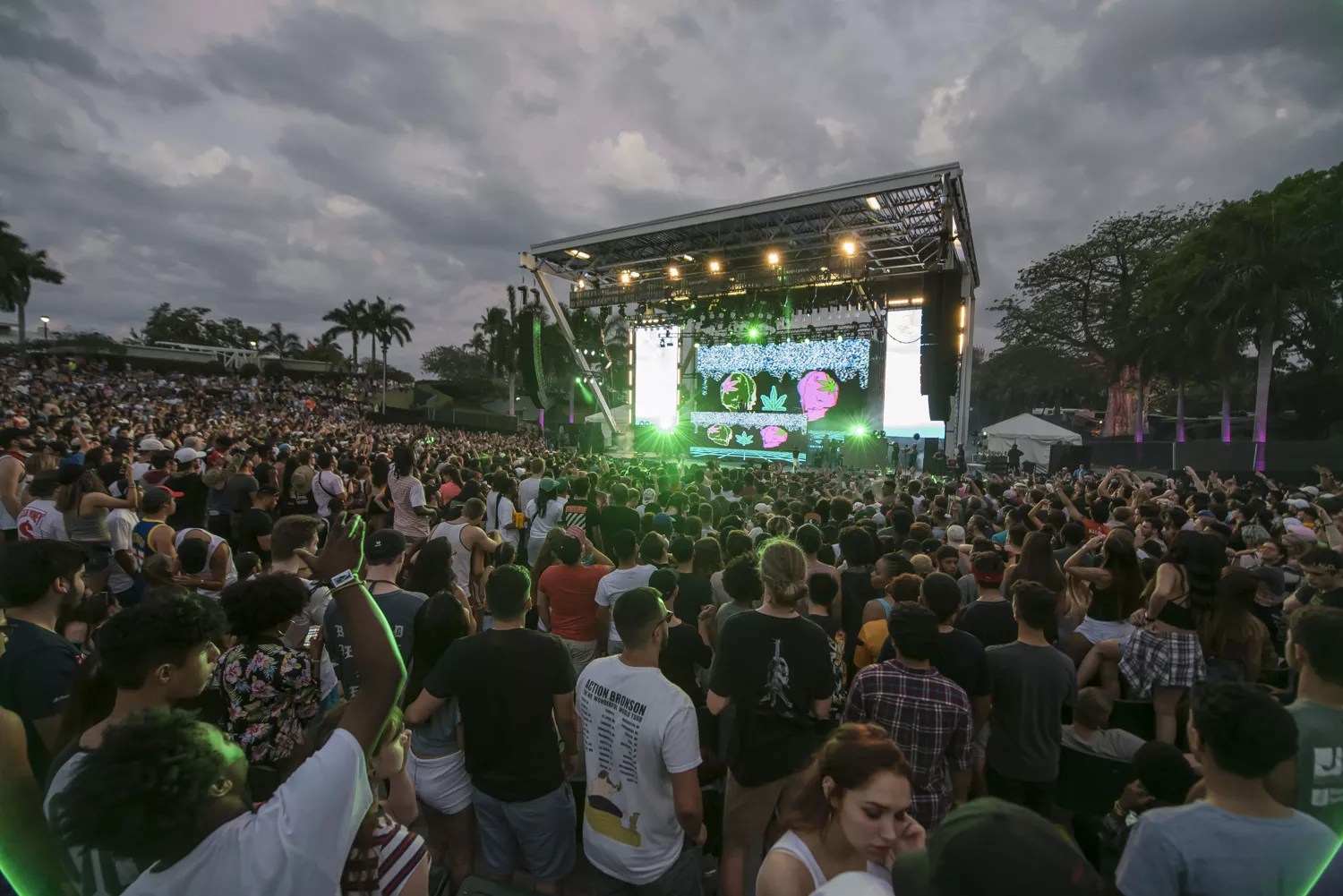
Photo by Alex Markow

Audio By Carbonatix
The fourth edition of Rolling Loud will kick off this Friday, but the scenery won’t be as spectacular as past years for fans forking over $300 to watch Future, Rick Ross, 21 Savage, Migos, J. Cole, and a platoon of other rap stars. The breathtaking view of Biscayne Bay that was the backdrop to last year’s Rolling Loud is being replaced with the hot asphalt of Hard Rock Stadium’s parking lot in Miami Gardens.
That’s because festival organizers were forced to find a new venue after City of Miami officials gave them the cold shoulder. Apparently, city leaders and condo residents don’t want downtown Miami to be overrun by black people. Yet Ultra Music Festival, with its predominantly Caucasian, but much larger, crowd, celebrated another year at Bayfront Park with much less resistance from downtowners and Miami government.
The unwelcoming party began more than a year ago when then-Miami Commissioner Frank Carollo threatened to pull the plug on Rolling Loud just a couple of weeks before it was scheduled to take place at Bayfront Park.
Carollo, who at the time was also the Bayfront trust’s chairman, was upset that the three-day hip-hop celebration was scheduled without the board’s consent by park director Timothy Schmand, who immediately resigned as a result of the commissioner’s whining. When Rolling Loud’s attorneys threatened to sue the city for more than $30 million in damages, the trust allowed the festival to go on.

illustration by Adam Izaguirre
In an interview with the Miami Herald earlier this year, Rolling Loud cofounder Tariq Cherif said trust board members were indecisive about whether his festival could return to Bayfront, which prompted him and his partners to seek a new venue. Cherif tried to make the best of the relocation to Miami Gardens, telling the daily that “the move represents our desire to create our own world, and Hard Rock provides us with that blank slate.”
There must be an unspoken rule that all the black-music events must be held in the parking lot of Hard Rock Stadium. Maybe its because Miami Gardens is the nation’s third-largest African-American city. Rolling Loud now joins Jazz in the Gardens, which is also held in the stadium’s perimeter grounds. Miami Gardens should build a lake next to the stadium so black concertgoers can have a waterfront view.
At least the Miami Dolphins could have allowed Rolling Loud’s organizers to stage their event inside the stadium like the annual Hot 97 Summer Jam at MetLife Stadium in New York City. But this is Miami-Dade County, the racist capital of America.
African-American events are not welcome near the water. Don’t forget – in just a few weeks, Miami Beach will be converted into a military police state when throngs of black tourists come to town for Memorial Day Weekend. Miami and Miami Beach officials might as well put up “whites only” signs along the expressways and causeways.
The Greater Miami Convention & Visitors Bureau needs to take charge and do something to make African-American visitors and locals feel welcome. If not, black tourists will wise up and stop spending money on flights, hotels, restaurants, and shops in the Magic City.
Follow Luke on Twitter: @unclelukereal1.